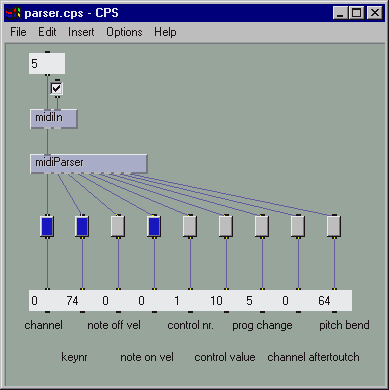It’s tough to make money selling music software. The market is small to begin with, made smaller when an unsettling number of users use pirated software, and divided into pieces by a range of different software. Sometimes, dead software winds up disappearing forever (Opcode Studio Vision), but sometimes it winds up free.
CPS is a powerful host for plug-ins. Like Native Instruments’ much-hyped platform KORE, it can be a plug-in in other hosts or host plug-ins itself. CPS is unusually powerful, with some truly unique features (aside from the normal VST/VSTi hosting on Mac and Windows). Director and Web browser supports makes this particularly worth a look if you’re building an interactive kiosk or a project involving live animation:

- You can patch stuff: A powerful graphical patching feature set lets you create complex performance scenarios. And if that’s not enough:
- You can code your own stuff: An SDK supports C++ and Java so you can create your own code
- You can use it with Adobe (Macromedia) Director: CPS is the only app I’ve ever seen of this type that interfaces with interactive visuals and multimedia in Adobe’s Director, making this perfect if you’re one of the niche of people building museum kiosks or other Director-y applications.
- It’ll run in your Web browser: Yep, you read that right; thanks to Director support you can publish to a Web-compatible version
- Csound users will be at home, because it uses the structured audio standard estbalished in MPEG-4
- It works with sensor input if you’re attaching I/O boards via serial so you can, for instance, make sounds by waving your hands over photocells. (See my ongoing coverage on this topic.)
- It’s a great learning environment if you want to try out input from sensors, basic programming, patching, MPEG4 opcodes, and more.
CPS isn’t going to be entirely without updates, fortunately. It’s not quite as complete on Mac as Windows, but it does run on both, and the creator plans to update it with a new version of Sun’s Java Virtual Machine (so obviously, the whole thing runs on Java). It’s had a cult following in academia, not surprising given its feature set. Now if the creator would just open source the thing (if that’s possible) . . .
Thanks to CDM’s Atomic Afro for this one; Afro’s got his eyes permanently peeled for free music software. More discussion on the CDM forums.